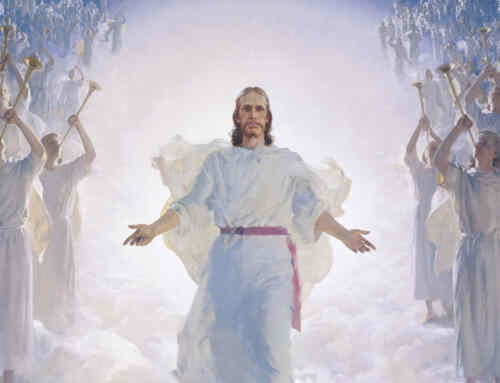When Paul wrote his first epistle to those at Thessalonica they evidently believed that the Lord would return while they were still living, in the very near future.
His message to them in the fourth chapter was that those of Jesus’ followers who had died would not be reawakened immediately but would remain dead until Jesus would return and raise them from the death condition. Because some of Jesus followers would still be living when he returned, Paul informs them that the resurrection of those who had died would not be delayed by those still living. He explains that when the time for the second advent of Jesus comes the first work would be the resurrection of the dead in Christ.
From that time onward as each faithful follower of Jesus died they would be resurrected and joined to that body of Christ until the last member would complete their earthly course.
In 2 Thess. the first chapter, the apostle is dealing with a different aspect of the Lord’s return. In verse six he explains that God is operating within his bounds of strict justice which encompasses all of his actions.
When Jesus returns to carry out God’s plan of establishing His kingdom here upon the earth, (Mat. 6:10 — Thy kingdom come. Thy will be done in earth, as it is in heaven.) it will accompanied with a time of trouble as prophesied in Dan 12:1-3, (And at that time shall Michael stand up, the great prince which standeth for the children of thy people: and there shall be a time of trouble, such as never was since there was a nation even to that same time: and at that time thy people shall be delivered, every one that shall be found written in the book.
2* And many of them that sleep in the dust of the earth shall awake, some to everlasting life, and some to shame and everlasting contempt.
3* And they that be wise shall shine as the brightness of the firmament; and they that turn many to righteousness as the stars for ever and ever.) and repeated by Jesus in answer to the question as to when he would return (Mat. 24:3, 24:21).
For those who refuse to obey the laws of that kingdom, and refuse to recognize the authority of the Christ, after sufficient opportunity is given to comply, the reward will be everlasting destruction, in other Scriptures referred to as the second death.
In summary, the reference to the Lord’s return in 1 Thess. 4 deals with the resurrection of body members of the Christ while the 2 Thess. 1 deals with the preparation of the social system of the resurrected world of mankind.



















